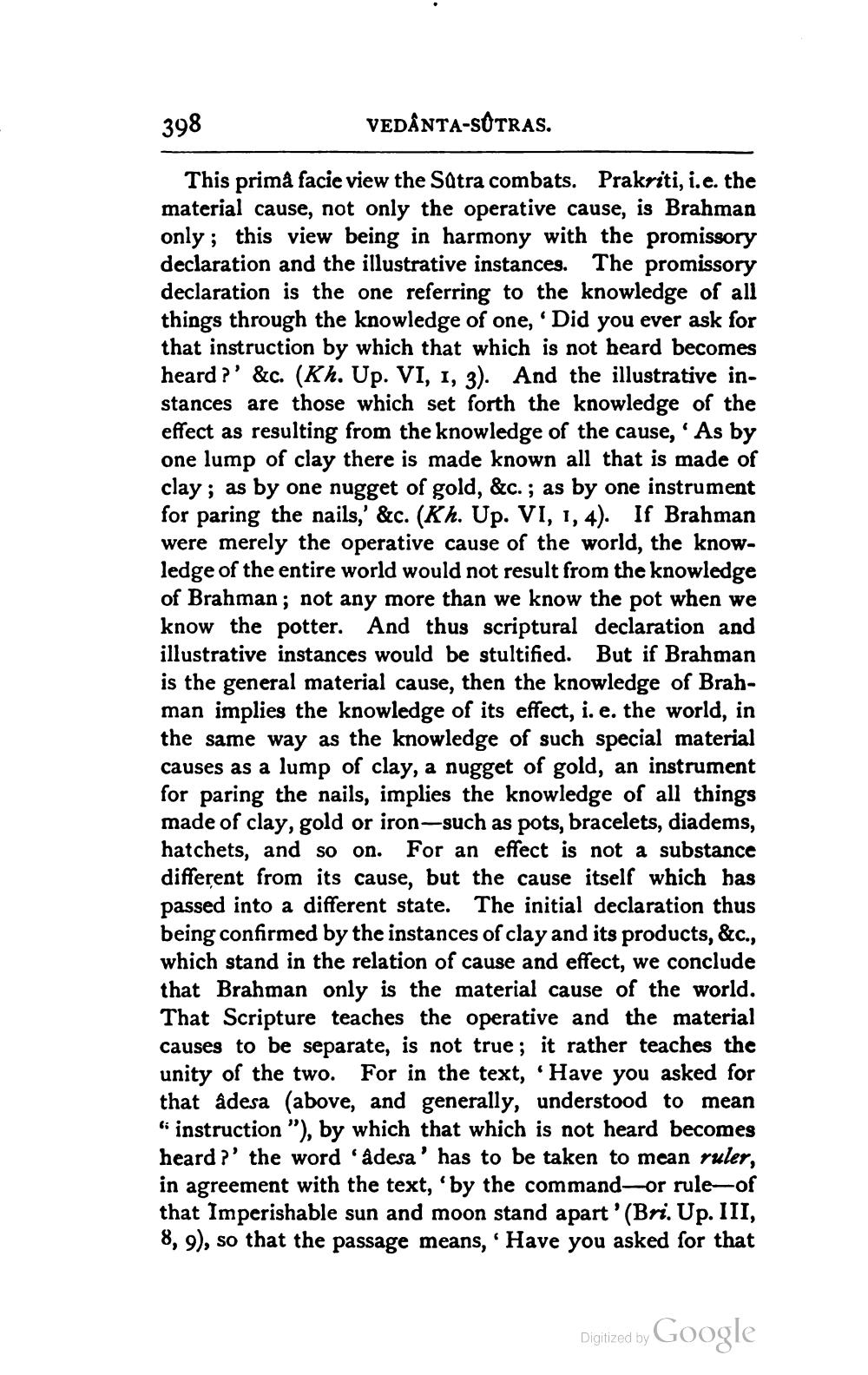________________
398
VEDÂNTA-SOTRAS.
This primâ facie view the Satra combats. Prakriti, i.e. the material cause, not only the operative cause, is Brahman only; this view being in harmony with the promissory declaration and the illustrative instances. The promissory declaration is the one referring to the knowledge of all things through the knowledge of one, Did you ever ask for that instruction by which that which is not heard becomes heard ?' &c. (Kh. Up. VI, 1, 3). And the illustrative instances are those which set forth the knowledge of the effect as resulting from the knowledge of the cause, 'As by one lump of clay there is made known all that is made of clay; as by one nugget of gold, &c.; as by one instrument for paring the nails,' &c. (Kh. Up. VI, 1, 4). If Brahman were merely the operative cause of the world, the knowledge of the entire world would not result from the knowledge of Brahman; not any more than we know the pot when we know the potter. And thus scriptural declaration and illustrative instances would be stultified. But if Brahman is the general material cause, then the knowledge of Brahman implies the knowledge of its effect, i. e. the world, in the same way as the knowledge of such special material causes as a lump of clay, a nugget of gold, an instrument for paring the nails, implies the knowledge of all things made of clay, gold or iron-such as pots, bracelets, diadems, hatchets, and so on. For an effect is not a substance different from its cause, but the cause itself which has passed into a different state. The initial declaration thus being confirmed by the instances of clay and its products, &c., which stand in the relation of cause and effect, we conclude that Brahman only is the material cause of the world. That Scripture teaches the operative and the material causes to be separate, is not true; it rather teaches the unity of the two. For in the text, Have you asked for that âdesa (above, and generally, understood to mean
instruction "), by which that which is not heard becomes heard ?' the word 'adesa' has to be taken to mean ruler, in agreement with the text, 'by the command-or rule of that Imperishable sun and moon stand apart '(Bri. Up. III, 8, 9), so that the passage means, 'Have you asked for that
Digitized by
Digitized by Google




